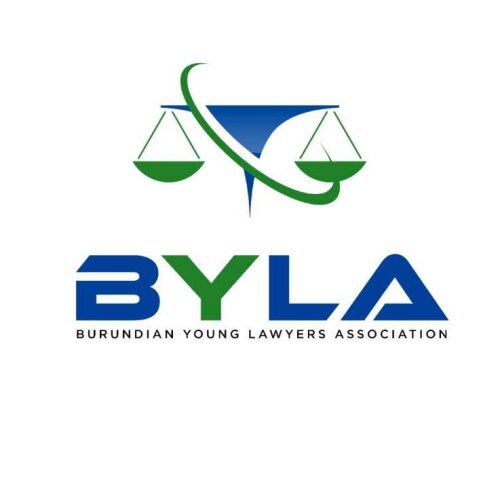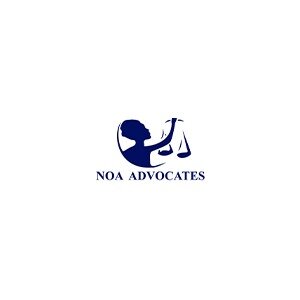Best Energy Regulatory Law Lawyers in Bujumbura
Share your needs with us, get contacted by law firms.
Free. Takes 2 min.
List of the best lawyers in Bujumbura, Burundi
About Energy Regulatory Law in Bujumbura, Burundi
Energy Regulatory Law in Bujumbura, Burundi deals with the legal framework governing electricity, natural gas, oil, and renewable energy production, distribution, and consumption. As the economic capital and largest city of Burundi, Bujumbura is at the center of energy development and regulation. The sector is closely monitored by government agencies to ensure compliance with national policies, sustainability, and consumer protection. Energy regulatory laws set the standards for licensing energy operators, pricing mechanisms, environmental considerations, and dispute resolution among stakeholders.
Why You May Need a Lawyer
Seeking legal guidance in Energy Regulatory Law is essential for individuals, businesses, and organizations involved or interested in the energy sector in Bujumbura. Common situations where a lawyer's expertise may be required include:
- Navigating licensing and permit application processes for energy projects.
- Resolving disputes with energy suppliers or consumers.
- Understanding tariff structures and regulations on electricity pricing.
- Complying with local environmental and safety standards.
- Negotiating electricity purchase agreements or contracts with energy providers.
- Handling issues related to rural electrification and access to energy services.
- Assistance with foreign investments in the local energy sector.
- Dealing with administrative procedures before energy regulatory authorities.
- Addressing land use and compensation for energy infrastructure development.
Local Laws Overview
In Burundi, the energy sector is primarily governed by the Law No. 1/13 of July 20, 2015, on the reorganization of the electricity sector, and various ministerial orders. The sector is overseen by the Agence de Régulation des Secteurs de l’Eau Potable, de l’Energie et des Mines (AREEM), which is the national regulatory authority. Key aspects of local laws relevant to Energy Regulatory Law in Bujumbura include:
- Licensing: All entities generating, transmitting, distributing, or supplying electricity must obtain appropriate licenses from AREEM.
- Tariff Regulation: The regulator oversees electricity tariffs to ensure fair pricing and protect consumer interests.
- Market Entry: Independent power producers and investors are allowed, subject to compliance with local content rules and national priorities.
- Environmental Requirements: Energy projects must comply with environmental impact assessments and standards.
- Consumer Protection: Laws mandate standards for service quality, transparency in billing, and dispute resolution.
- Rural Electrification: The government promotes electrification programs, especially for underserved rural areas, via special legislations and incentives.
- Dispute Resolution Mechanisms: AREEM provides administrative and judicial avenues for settling disputes within the sector.
Frequently Asked Questions
What is the main regulatory body overseeing the energy sector in Bujumbura?
The Agence de Régulation des Secteurs de l’Eau Potable, de l’Energie et des Mines (AREEM) is the national authority responsible for regulating the energy sector, including licensing, compliance, and dispute resolution.
Do I need a license to operate a small energy business in Bujumbura?
Yes, any entity intending to generate, distribute, or supply electricity or other forms of energy must obtain the requisite license from AREEM, regardless of the project's size.
How are electricity tariffs set in Bujumbura?
Electricity tariffs are established by AREEM after reviewing proposals from service providers and ensuring compliance with fairness, efficiency, and affordability principles for consumers.
What are the penalties for operating in the energy sector without proper authorization?
Engaging in energy activities without the required licenses can result in fines, confiscation of equipment, shutdown orders, and, in some cases, criminal prosecution.
Are there incentives for investing in renewable energy projects?
The Burundian government offers certain incentives such as tax reductions, customs exemptions, and streamlined permitting processes for investors in renewable and off-grid energy projects, especially those targeting rural areas.
How are disputes between energy consumers and suppliers resolved?
Initial complaints are filed with AREEM, which provides mediation and, if necessary, formal adjudication. Unresolved disputes may be taken to administrative or civil courts.
What environmental regulations apply to energy projects?
All energy projects must undergo an environmental impact assessment and adhere to local standards governing emissions, waste management, and land use.
Can a foreign company invest in the Burundian energy sector?
Yes, foreign companies may invest, provided they comply with local regulations, obtain necessary licenses, and sometimes fulfill local content requirements.
Is electricity access available throughout Bujumbura?
While central urban areas have relatively better access, some peripheral zones may experience lower coverage. The government is prioritizing expanded access and infrastructure upgrades.
How can I verify if an energy operator is legally authorized?
You may consult AREEM's official registry, which lists all licensed operators authorized to conduct activities in the energy sector nationwide.
Additional Resources
Several governmental and non-governmental organizations can assist with information and legal matters related to Energy Regulatory Law in Bujumbura:
- Agence de Régulation des Secteurs de l’Eau Potable, de l’Energie et des Mines (AREEM): The primary regulatory authority for energy matters in Burundi.
- Ministry of Energy and Mines: Responsible for national energy policies, strategic plans, and public tenders.
- Burundi Electricity and Water Utility (REGIDESO): The main public utility for electricity supply and distribution.
- Environmental Protection Agencies: Guidance on compliance with environmental regulations for energy projects.
- Local Bar Associations: Resources to help you find qualified legal professionals in energy law.
- International Development Organizations: Many offer programs and support relevant for energy sector investors or community initiatives.
Next Steps
If you require legal assistance in the area of Energy Regulatory Law in Bujumbura, Burundi, consider the following steps:
- Identify the specific legal issue or question you have regarding energy regulations, licensing, compliance, or disputes.
- Gather all relevant documentation, including any correspondence with regulators or contracts with energy providers.
- Contact a qualified local lawyer specializing in energy law for an initial consultation and guidance on your rights and obligations.
- Consult AREEM or the Ministry of Energy and Mines for official information on regulatory requirements and procedures.
- If you face an urgent regulatory or contractual issue, take immediate legal advice to avoid penalties or operational disruptions.
- Stay informed about ongoing legislative changes that could impact your energy-related activities in Bujumbura.
A legal expert can help navigate complex energy regulations, protect your interests, and ensure compliance with all local laws and industry standards.
Lawzana helps you find the best lawyers and law firms in Bujumbura through a curated and pre-screened list of qualified legal professionals. Our platform offers rankings and detailed profiles of attorneys and law firms, allowing you to compare based on practice areas, including Energy Regulatory Law, experience, and client feedback.
Each profile includes a description of the firm's areas of practice, client reviews, team members and partners, year of establishment, spoken languages, office locations, contact information, social media presence, and any published articles or resources. Most firms on our platform speak English and are experienced in both local and international legal matters.
Get a quote from top-rated law firms in Bujumbura, Burundi — quickly, securely, and without unnecessary hassle.
Disclaimer:
The information provided on this page is for general informational purposes only and does not constitute legal advice. While we strive to ensure the accuracy and relevance of the content, legal information may change over time, and interpretations of the law can vary. You should always consult with a qualified legal professional for advice specific to your situation.
We disclaim all liability for actions taken or not taken based on the content of this page. If you believe any information is incorrect or outdated, please contact us, and we will review and update it where appropriate.












